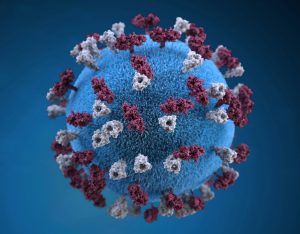15 Lifestyle Habits That Significantly Impact Your Sexual Health

Sexual health is a crucial component of overall well-being, deeply intertwined with physical, mental, and emotional health. A variety of lifestyle habits—both good and bad—can significantly influence sexual performance, desire, and satisfaction. These habits affect not only the physiological aspects of sexual function but also psychological factors like self-esteem, body image, and emotional intimacy.
In this article, we will explore 15 lifestyle habits that can either enhance or detract from your sexual health. Understanding these habits can help you make informed decisions that support your sexual well-being and improve your overall quality of life.
1. Regular Physical Exercise
Exercise is one of the most effective ways to improve sexual health. Regular physical activity enhances cardiovascular health, which is crucial for blood circulation. For men, improved circulation is essential for achieving and maintaining an erection, while for women, it supports better arousal and lubrication. Additionally, exercise boosts stamina, making it easier to engage in physical activity, including sex, without feeling fatigued.
Exercise also stimulates the release of endorphins, which reduce stress and anxiety, boosting libido. Activities like yoga and Pilates are especially beneficial for improving flexibility, strength, and mental focus during sex. In addition, exercise helps maintain a healthy body weight, reducing the risk of conditions such as erectile dysfunction (ED) and hormonal imbalances.
2. A Balanced Diet
Nutrition plays a fundamental role in sexual health. A balanced diet rich in fruits, vegetables, whole grains, and lean proteins supports overall health, including sexual function. Certain foods, such as leafy greens, berries, nuts, and omega-3 fatty acids, are particularly beneficial for improving circulation and supporting heart health, which are essential for sexual performance.
On the other hand, diets high in processed foods, saturated fats, and excess sugar can negatively impact sexual health by contributing to obesity, diabetes, and cardiovascular disease, all of which are linked to sexual dysfunction.
3. Adequate Sleep
Getting enough sleep is crucial for maintaining healthy levels of hormones, such as testosterone and estrogen, which directly affect sexual desire and performance. Sleep deprivation is associated with reduced libido, fatigue, and irritability, which can decrease interest in sexual activity and overall satisfaction.
Studies have shown that poor sleep quality can also lead to erectile dysfunction and hinder the body’s ability to achieve proper arousal. Establishing a regular sleep schedule and ensuring 7-9 hours of restful sleep each night can significantly improve sexual performance and libido.
4. Stress Management
Chronic stress is one of the most significant lifestyle factors that negatively affect sexual health. High levels of stress trigger the release of cortisol, a hormone that can reduce levels of testosterone and other sex hormones, leading to a decrease in libido and sexual performance. Stress can also lead to performance anxiety, making it difficult to focus on pleasure during intimate moments.
Engaging in regular stress management practices, such as meditation, deep breathing exercises, yoga, or mindfulness, can help reduce the impact of stress on your sexual health and improve both physical and emotional intimacy.
5. Maintaining a Healthy Weight
Obesity has a well-established link with sexual dysfunction, particularly erectile dysfunction in men and decreased libido in both men and women. Excess weight is associated with conditions like diabetes, heart disease, and high blood pressure, all of which impair blood flow and hormonal balance, crucial factors in sexual health.
Maintaining a healthy weight through proper diet and exercise can improve energy levels, enhance physical stamina, and boost body confidence, all of which contribute to a healthier and more satisfying sex life.
6. Smoking Cessation
Smoking has long been associated with poor sexual health due to its detrimental effects on circulation. Nicotine constricts blood vessels, reducing blood flow to the genitals, which can lead to erectile dysfunction in men and reduced arousal and lubrication in women. Smoking is also linked to a decline in sperm quality and fertility issues in both men and women.
Quitting smoking improves blood vessel health, enhances circulation, and can reverse some of the negative effects on sexual function. Over time, former smokers often experience improved stamina, libido, and overall sexual satisfaction.
7. Moderate Alcohol Consumption
While a glass of wine may help reduce inhibitions and increase relaxation, excessive alcohol consumption can have the opposite effect on sexual health. Alcohol is a depressant that slows down the central nervous system, impairing arousal, sensation, and performance. Chronic heavy drinking is linked to erectile dysfunction, reduced libido, and difficulty achieving orgasm.
To maintain optimal sexual health, it’s important to consume alcohol in moderation. Limiting intake to one drink per day for women and two drinks per day for men can help prevent the negative impact of alcohol on sexual function.
8. Limiting Pornography Consumption
While moderate use of pornography can be part of a healthy sex life, excessive or compulsive consumption may lead to performance anxiety, diminished sexual satisfaction, and even erectile dysfunction in real-life situations. Regular consumption of highly stimulating pornography can desensitize the brain to sexual arousal, making it difficult to achieve satisfaction with a partner.
Limiting or moderating pornography consumption can help restore a natural sense of arousal and desire during physical intimacy, improving both sexual performance and emotional connection with a partner.
9. Communication and Emotional Intimacy
Effective communication and emotional intimacy with your partner are key components of a healthy sexual relationship. Being open about your desires, preferences, and concerns can reduce performance anxiety and increase mutual satisfaction. Emotional intimacy fosters a deeper connection, which can enhance physical intimacy and sexual pleasure.
Couples who regularly communicate about their sexual needs and boundaries tend to have more fulfilling sexual relationships, with higher levels of trust and less sexual frustration.
10. Avoiding Drugs that Affect Sexual Function
Certain medications and recreational drugs can have a negative impact on sexual health. Antidepressants, blood pressure medications, antihistamines, and even certain painkillers can lead to sexual side effects, such as reduced libido or difficulty achieving orgasm. Illicit drugs, including cocaine, methamphetamine, and marijuana, can impair sexual performance and lead to long-term sexual dysfunction.
If you suspect that your medications are affecting your sexual health, consult your doctor. They may be able to adjust your dosage, recommend alternatives, or provide additional solutions to mitigate sexual side effects.
11. Sunlight and Vitamin D
Adequate exposure to sunlight helps the body produce vitamin D, which plays an important role in maintaining healthy testosterone levels in men. Studies have shown that men with lower levels of vitamin D tend to have lower testosterone, which can negatively affect libido and sexual performance.
Spending time outdoors and ensuring sufficient vitamin D intake—either through sunlight or supplements—can improve testosterone levels and enhance sexual health.
12. Limiting Excessive Screen Time and Sedentary Behavior
Excessive time spent on screens—whether watching TV, playing video games, or working on a computer—can lead to a sedentary lifestyle, which negatively impacts physical health, including sexual function. Sedentary behavior is associated with obesity, cardiovascular disease, and poor circulation, all of which impair sexual health.
Reducing screen time and incorporating more physical activity into your daily routine can help improve your overall health, boost libido, and enhance sexual performance.
13. Hydration
Staying properly hydrated is important for maintaining physical energy and overall bodily functions, including sexual health. Dehydration can lead to fatigue, reduced stamina, and difficulty maintaining arousal during sexual activity. Additionally, dehydration can affect blood flow and lubrication, contributing to discomfort or difficulty during sex.
Make sure to drink enough water throughout the day to support your energy levels and physical performance during intimate moments.
14. Regular Sexual Activity
Regular sexual activity is beneficial for both physical and emotional health. Engaging in sexual activity on a regular basis helps maintain healthy blood flow to the genital area, supports the production of sex hormones like testosterone and oxytocin, and strengthens the emotional bond between partners.
Regular sexual activity can also improve sexual function over time by reducing stress, increasing confidence, and enhancing communication between partners. Sexual health, like many aspects of health, can improve with regular practice and attention.
15. Mindfulness and Being Present During Sex
Practicing mindfulness during sex can greatly enhance sexual satisfaction and intimacy. When you focus on being fully present in the moment—rather than worrying about performance or other distractions—you can experience greater pleasure and emotional connection with your partner. Mindfulness helps reduce anxiety and promotes relaxation, leading to more satisfying and fulfilling sexual experiences.
Techniques like deep breathing, slow touch, and sensory awareness can help you stay grounded and focused on the sensations of the moment, improving both the quality of your sexual encounters and your mental well-being.
Conclusion
Sexual health is deeply connected to various lifestyle habits that affect both physical and mental well-being. By incorporating positive habits like regular exercise, balanced nutrition, stress management, and open communication, you can significantly enhance your sexual health and overall quality of life. Conversely, habits like smoking, excessive alcohol consumption, and chronic stress can undermine sexual performance and satisfaction.
Making intentional choices to support your sexual health will not only lead to improved sexual function but also foster deeper emotional intimacy, greater self-confidence, and a healthier, happier relationship with your partner.


